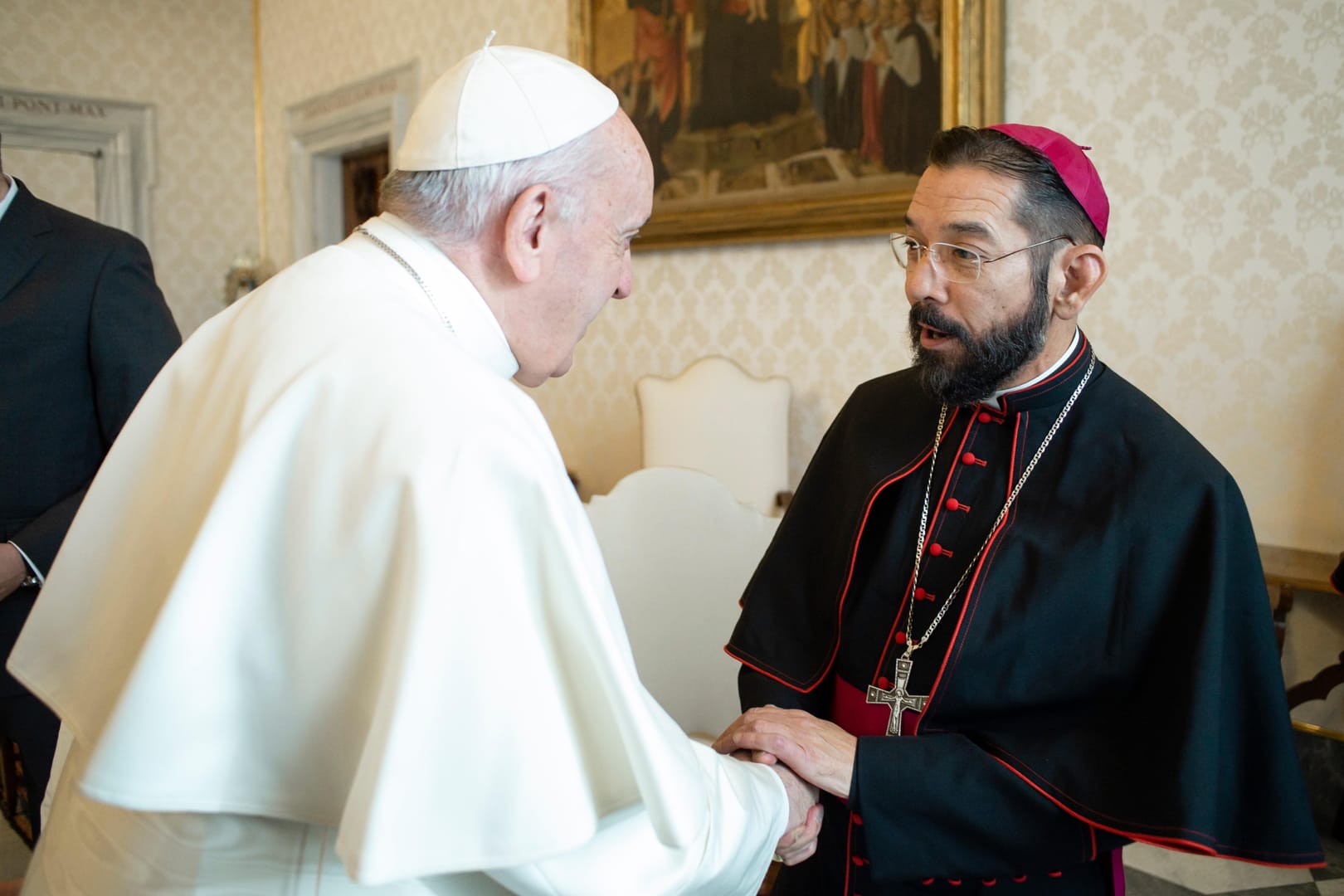NEW YORK – To address noticeable tensions, American Catholics want church leaders to foster unity through promoting interculturality and greater co-responsibility, and for them to better articulate church teaching, according to the latest synod synthesis report for the American church.
The United States Conference of Catholic Bishops on May 28 published the “National Synthesis of the People of God in the United States of America for the Interim Stage,” which summarizes the responses of more than 35,000 Catholics taken during more than 1,000 diocesan listening sessions over Lent.
The U.S. synod team said 76 percent of American dioceses and eparchies submitted reports. There were also 15 separate listening sessions held that focused on church life, social justice, and vocations, in which over 350 people participated. The American bishops met for a synod listening session, as well.
The 20-page report identifies both sources of tensions and desires expressed by American Catholics.
One area of tension is a feeling of some Catholics that the traditions of the church are changing. The report also notes that many participants said that a lack of clarity from church leadership about “our truth” creates confusion, which “is leading to frustration and division among the faithful.”
“Numerous reports from the listening sessions cited instances of communication, both from the hierarchy and from secular and Catholic media, which reflect and perpetuate division within the universal church and send conflicting messages of what it means to be Catholic,” the report states. “When the communication of the Church is not clear and consistent, it becomes an obstacle to the mission.”
Another source of tension is Catholic social teaching, with participants expressing “concerns that the church has allowed the ongoing polarization and conflict to lead to a denial of the Church’s social magisterium in many situations.” Similarly, a source of tension, according to the report, is a disagreement on how the church should balance a “welcoming spirit” with a need to articulate church teaching.
While participants made their concerns clear, they also laid out a path forward for the American church.
According to the report, participants expressed a desire for the church to thrive as a “safe harbor” – a place where the faithful are embraced, sustained, and loved. To do so, the report notes that parishes with numerous small faith communities, bible studies, and prayer groups prove most successful in welcoming and integrating people from diverse backgrounds. And therefore, parishes should promote interculturality to create more unity between cultures that share the same church.
The report states that participants also want a greater emphasis on faith formation and evangelization. Specifically, the report highlights a desire for stronger catechesis and formation focusing specifically on programs for evangelization, Catholic Social Teaching, and the role of the family.
The report also highlights that many participants emphasized the importance of co-responsibility, and the importance that lay people rely on their pastors and vice versa. They said there needs to be more women held leadership roles within parishes, dioceses, schools and organizations. Similar desires were expressed about the need for young adults to actively participate in their faith.
Bishop Daniel Flores of Brownsville, chair of the USCCB Committee on Doctrine who leads the synod process for the American church, said in the report’s introductory letter that it’s clear American Catholics have a desire to rebuild and strengthen the faith, and that speaking and listening is a way to do so.
“This document reflects the sense that there exists among Catholics in the United States a deep desire to rebuild and strengthen our communion as the Body of Christ,” Flores said.
Rebuilding trust where it is frayed involves practicing the humanly graceful art of listening to each other and speaking together,” Flores continued. “The more we do this, the more we realize that it is the Lord who never fails us. He responds to us, and knows well how to accomplish his will through the communion of his imperfect and often wounded servants.”
In terms of the American bishops’ interim phase listening session, the report states that several bishops highlighted the challenges posed by changing cultures within their presbyterates. It states that priests from other countries need to be appreciated for their gifts, and bishops should try to visit their diocese of origin.
Some bishops, according to the report, expressed that they feel that they must act as “the episcopal referee” among priests with different views. Fostering fraternal relations and unity with the priests and among them was often mentioned as a, but challenging priority.
Polarization – both theological and political – was also highlighted, as was the importance of a synodal style of conversation to make progress in different areas.
“It was affirmed that integration of a synodal style of conversation, especially in the parishes and dioceses, in search of better human relations and mutual understanding can help diffuse resentment and suspicion. This will require patience and perseverance,” the report states.
The section of the report dedicated to the bishops’ listening session also touches on the American bishops’ relations with the Vatican. The verdict was that relations are “generally positive. However, several noted that direct contact with Rome is not very frequent, and that communication between the bishops and offices of the Holy See could be better.
They did, though, credit Apostolic Nuncio Cardinal Christophe Pierre for work “in fostering a spirit of communion, and in facilitating communication with the Holy See. And it was expressed that the Ad Limina visits to Rome are occasions of “fraternity and joy,” and that conversations with Pope Francis are “fraternal and encouraging,” according to the report.
“Overall, there was a great attitude for the experience of gathering synodally as bishops,” the report states. “These moments allowed for a deeper reflection of how synodality can best be integrated into Church life in the United States.”
Follow John Lavenburg on X: @johnlavenburg
